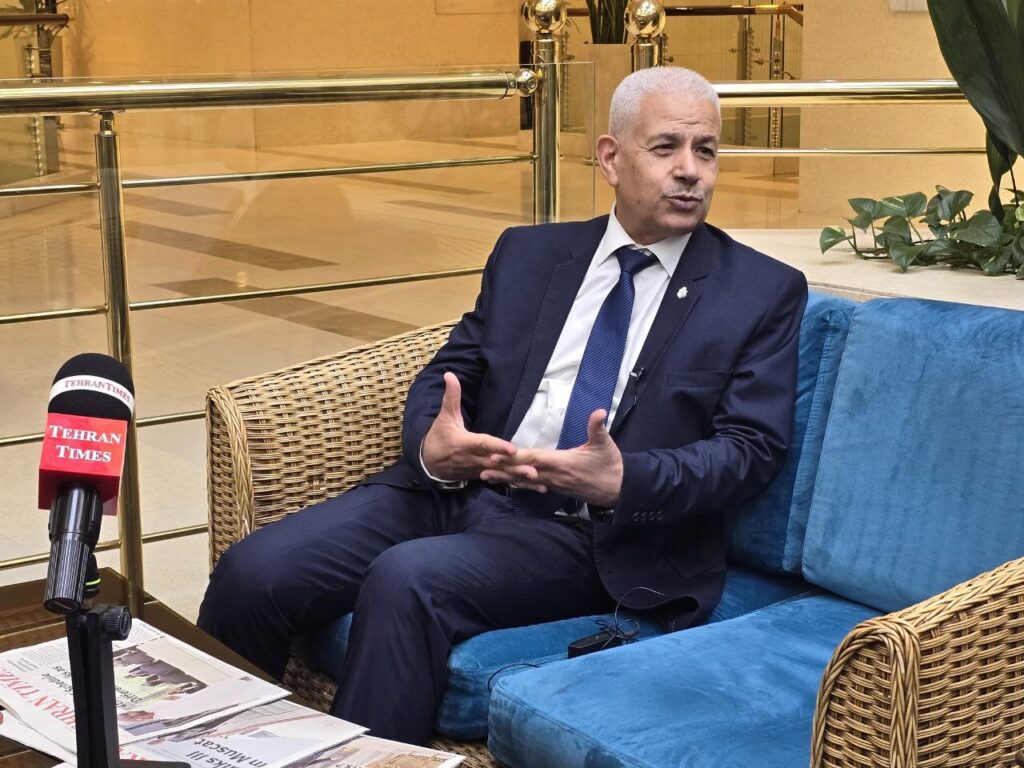Tehran – Iran and Tunisia may not be close to each other. However, there is deep mutual respect and common interest between the two capitals in West Asia and North Africa.
Both countries have endured many years of foreign intervention in their modern history, but have regained control over their fate in recent decades. In addition to sharing religious and humanitarian values, this historical similarity has fostered friendships between Iran and Tunisia.
One area in which cooperation remains underdeveloped is economic relations. Analysts say the volume of trade between the two countries is far below the real possibility. In an interview with Tunisian Minister of Trade and Export Development, Samir Abyd, the Tehran Times explored the reasons behind this stagnation and how economic cooperation can be strengthened. Minister Abyd arrived in Tehran earlier this week and attended the 3rd Iran-Africa Economic Cooperation Summit.
Below is the full interview:
We observed that political relations between Iran’s Islamic Republic and Tunisia have been warming in recent years. However, economic ties have not reached the expected level. What is the reason behind this contradiction?
I would like to emphasize that our political relations between countries are at a very high level, sophisticated and strategic. Several factors contribute to lower levels when it comes to economic relations. One reason for this is that there was little direct engagement over a period of time.
Furthermore, Iran has other geographical and political priorities, particularly in Africa. Political pressures and global challenges also directly influenced economic cooperation, as diplomatic debates often prioritize political issues over economic concerns.
Yesterday we had a working session with our Iranian counterparts to address this issue. Together, we looked into mechanisms to strengthen economic relations and raise them to the level of our strong political ties. There are great opportunities in both countries. Tunisia and Iran can benefit from each other. The global economic situation is because it provides ample space for collaboration. We have agreed to specific measures to increase economic cooperation.
So, is the national priorities the main reason behind the relatively low economic involvement between the two countries?
I’m not saying that economic involvement has declined, but rather that countries had different priorities. Iran was under intense international pressure, making direct economic adjustments more difficult. However, future joint committee meetings held in Tunisia will serve as a practical framework for strengthening relationships. This conference will allow us to explore all economic sectors, explore available opportunities, and develop new approaches to deepen collaboration.
What specific economic opportunities can both countries take advantage of to enter new markets?
As mentioned before, our economic environment offers promising opportunities. Tunisia serves as a gateway to Africa given its strong relationship with several African countries. Meanwhile, Iran has a big presence in the Asian market and has strategic ties with Russia and other distant economies. By working together, Iran and Tunisia can create new paths for market expansion and trade.
Furthermore, tourism is one sector we have identified as promising. Beyond that, there are other industries where you can explore joint ventures. For example, Iranian and Tunisian companies can work together to develop new products and services that can be introduced into the third market. Establishing partnerships in strategic industries will improve mutual economic growth.
Based on previous involvement with Iran so far, how do you imagine the future of economic cooperation between Iran and Tunisia?
The strong political will between our nations provides a solid foundation for economic expansion. Given the willingness I have observed from my Iranian counterparts, I think there are all kinds of reasons why we are optimistic. Our political relations are on an exemplary level and we are committed to ensuring that economic cooperation reaches similar heights.
Achieving these goals requires active private sector involvement. Government agencies play an important role, but promoting business exchange is essential. Visits and dialogue between businesses in Iran and Tunisia need to be encouraged to not only boost direct trade but also explore opportunities in the broader international markets.

